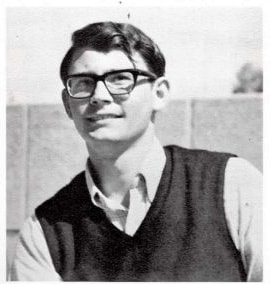OFFICIAL BIO
Raised in the Cascade Mountains of Oregon, William Kent Krueger briefly attended Stanford University—before being kicked out for radical activities. After that, he logged timber, worked construction, tried his hand at freelance journalism, and eventually ended up researching child development at the University of Minnesota. He’s been married for fifty years to a marvelous woman who is a retired attorney. He makes his home in St. Paul, a city he dearly loves.
Krueger writes a mystery series set in the north woods of Minnesota. His protagonist is Cork O’Connor, the former sheriff of Tamarack County and a man of mixed heritage—part Irish and part Ojibwe. His work has received a number of awards, including the Minnesota Book Award, the Loft-McKnight Fiction Award, the Anthony Award, the Barry Award, the Dilys Award, and the Friends of American Writers Prize. His last eleven novels were all New York Times bestsellers.
Ordinary Grace, his stand-alone novel published in 2013, received the Edgar Award, given by the Mystery Writers of America in recognition for the best novel published in that year. The companion novel, This Tender Land, was published in September 2019 and spent nearly six months on the New York Times bestseller list.
More About Kent

Call me Kent.
I was born in Torrington, Wyoming, to a family full of wanderlust. Before I graduated from high school, I’d lived in eleven different houses, in eight different cities, in six different states. The only real constant in my life was the dream of becoming a writer.
I entered Stanford University in the fall of 1969. In the turbulent spring of 1970, during the height of the divisive Vietnam War, I joined in a takeover of the president’s office in protest of what I saw as the University’s complicity in the production of military weapons. Not only did the administration sic the riot police on me, they evaporated my academic scholarship, forcing me to leave after my freshman year. Which was okay by me. I’d met the woman I knew I wanted to marry, and she lived in Nebraska. So, I headed east.
Over the next few years, I logged a bit of timber, worked a lot of construction, published a few magazine articles, and generally enjoyed life. I married—that lovely Cornhusker named Diane—and we pretty much had a ball.
Then we conceived our first child and had to get serious about life. In the summer of 1980, we moved to St. Paul, Minnesota so that Diane could attend law school. She gave birth to our second child in the first semester of her final year—and still made the Dean’s List.
It was during this period that I began to write in earnest and to develop the habits that became the basis for the writing discipline I follow to this day.

For several years after moving to St. Paul, we lived at the edge of a quiet neighborhood called Tangletown. (The streets were confusing and lovely.) A block away stood a café, the St. Clair Broiler, which opened its doors at 6:00 a.m. I began rising at 5:30 to hit the Broiler and spend an hour or so writing before I hustled off to a job that kept food on the table and a roof over our heads. Mostly I wrote short stories, some of which were published, and a couple of which won awards. Writing longhand in cheap wire-bound notebooks in booth #4 at the Broiler became for me a part of the magic of the creative process.
The Broiler ceased operation and closed its doors long ago. Although I make my living from my writing now and don’t have to get up at the crack of dawn, I still do. I spend a couple of hours every morning in a local coffee shop, hunched over my notebook while the sun rises. For me, it’s still the most creative time of every day. Not only am I dreaming in those hours, I’m fulfilling a dream I’ve had since childhood.
Related Content
Videos & Interviews with Kent
Awards & Recognition
Press Kit

